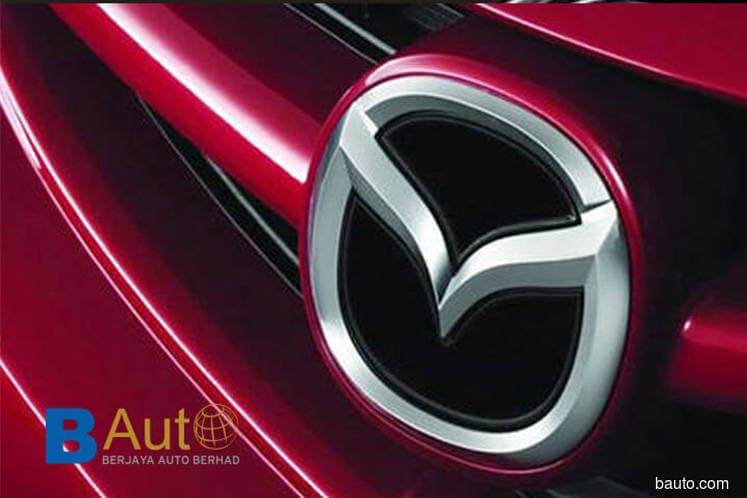
This article first appeared in The Edge Financial Daily on January 17, 2020
Bermaz Auto Bhd
(Jan 16, RM2.02)
Maintain buy with an unchanged target price of RM2.70: Bermaz Auto Bhd (BAuto) launched its all new sport utility vehicle (SUV), the CX-30, on Wednesday. Three variants are offered comprising two petrol (2.0G and 2.0G High) and one turbodiesel (1.8D High) variants, priced at RM143,059, RM164,059 and RM172,943. Mazda’s i-Activesense suite of safety and driver assistance systems are available with the 2.0G High and 1.8D High variants.
The CX-30 is built on the Mazda 3 platform. Size-wise, the CX-30, which comes only in completely- built-up (CBU) form at the moment, slots in between the current CX-3 (priced at RM121,000, generating 58 unit sales monthly) and the CX-5 (RM137,000-RM178,000, generating 600-800 unit sales monthly).
Based on our recent meeting with the management, an initial batch of 169 units has been imported with half of this coming with ready bookings from customers.
It is still uncertain if the CX-30 will be locally assembled for the Malaysian market, but we note that Thailand has already received the principal’s approval to produce the CX-30 at the AutoAlliance Thailand plant. At this juncture, we understand that BAuto is negotiating to potentially localise the CX-30, but there is no decision on this yet.
That said, we understand BAuto is exploring localising another SUV model. From a strategic standpoint, BAuto is looking to fill up the gap in its model mix for price points between RM120,000 and RM140,000. The gradual increase in CX-5 pricing over the years has left somewhat a vacuum within these price points.
The MX-30, which was launched at the Tokyo Motor Show and comes in hybrid variants (about the same size as the CX-30), is a potential model under consideration, other than the CX-30. We think the decision would also hinge on potential incentives for hybrids/electric vehicles under National Automotive Policy 2020.
BAuto is looking to invest in incremental capacity at 30%-owned Inokom, which will see Inokom’s total capacity double to 80,000 per annum by April 21, 2020 from 40,000 units per annum currently.
Total capital expenditure is expected at RM200 million but the bulk is expected to be funded by Inokom’s internal funds and borrowings. BAuto will occupy 50% of the enlarged Inokom capacity, that is to say around 40,000 per annum, versus 28,000-30,000 per annum currently. The incremental capacity is expected to be filled up, partly, by BAuto’s third complete knocked-down model.
Despite attractive dividend payouts, BAuto’s balance sheet remains underutilised. Although we forecast a dividend payout of more than 100% for forecasted financial year ending April 30, 2020, balance sheet remains in a solid net cash position. The capacity expansion at Inokom, coupled with BAuto’s huge war chest, positions it well to undertake brand expansion, particularly to fill up the gap in BAuto’s model mix for the lower priced mass market segment, in our opinion.
The cheapest Mazda model, the Mazda 2, for example, is priced at about RM90,000 and is imported as CBU, which does not really position BAuto to compete effectively in the mass market segment. Furthermore, Mazda models in general are positioned as premium Japanese models. — MIDF Research, Jan 16